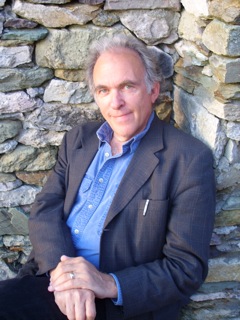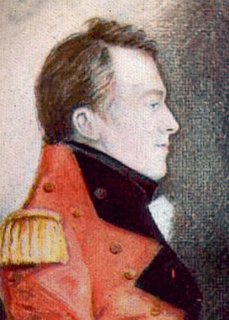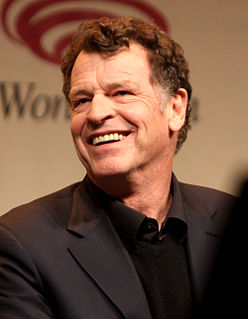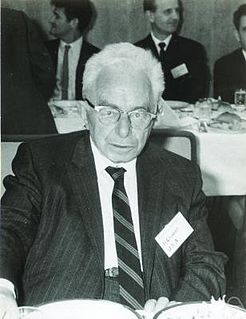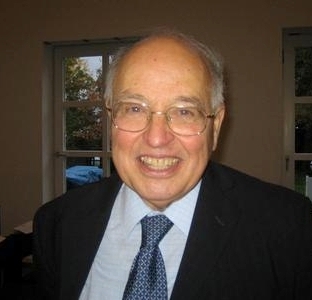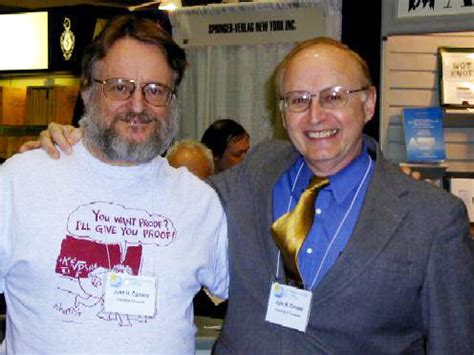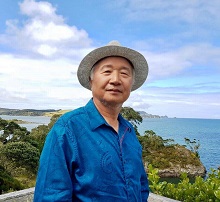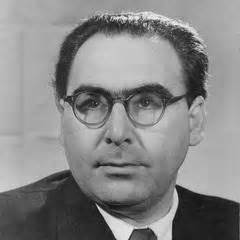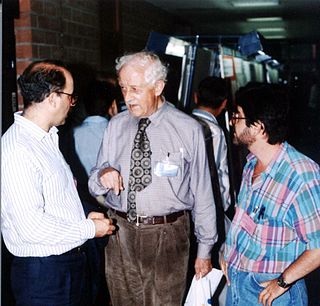Top 1200 Mathematics And Science Quotes & Sayings - Page 7
Explore popular Mathematics And Science quotes.
Last updated on December 12, 2024.
Pi is not merely the ubiquitous factor in high school geometry problems; it is stitched across the whole tapestry of mathematics, not just geometry's little corner of it. Pi occupies a key place in trigonometry too. It is intimately related to e, and to imaginary numbers. Pi even shows up in the mathematics of probability
Because a fact seems strange to you, you conclude that it is not one. ... All science, however, commences by being strange. Science is successive. It goes from one wonder to another. It mounts by a ladder. The science of to-day would seem extravagant to the science of a former time. Ptolemy would believe Newton mad.
Mathematics as an expression of the human mind reflects the active will, the contemplative reason, and the desire for aesthetic perfection. Its basic elements are logic and intuition, analysis and construction, generality and individuality. Though different traditions may emphasize different aspects, it is only the interplay of these antithetic forces and the struggle for their synthesis that constitute the life, usefulness, and supreme value of mathematical science.
My parents didn't know much science; in fact, they didn't know science at all. But they could recognize a science book when they saw it, and they spent a lot of time at bookstores, combing the remainder tables for science books to buy for me. I had one of the biggest libraries of any kid in school, built on books that cost 50 cents or a dollar.
The whole point of science is that most of it is uncertain. That's why science is exciting--because we don't know. Science is all about things we don't understand. The public, of course, imagines science is just a set of facts. But it's not. Science is a process of exploring, which is always partial. We explore, and we find out things that we understand. We find out things we thought we understood were wrong. That's how it makes progress.
I'm not the sort of person who does my mathematics writing on paper. I do that at the last stage of the game. I do my mathematics in my head. I sit down for a hard day's work and I write nothing all day. I just think. And I walk up and down because that helps keep me awake, it keeps the blood circulating, and I think and think.
I wanted to be a scientist. My undergraduate degree is in biology, and I really did think I might go off and be some kind of a lady Darwin someplace. It turned out that I'm really awful at science and that I have no gift for actually doing science myself. But I'm very interested in others who practice science and in the stories of science.
As mathematics had been my best subject at school, my parents proposed - and I accepted - studies at the University of Lund in mathematics, statistics, and economics. The choice of the latter subject is said to be due to the fact that at the age of five years, I was very fond of calculating the cost of the various cakes my mother used to bake.
Of all the intellectual faculties, judgment is the last to mature. A child under the age of fifteen should confine its attention either to subjects like mathematics, in which errors of judgment are impossible, or to subjects in which they are not very dangerous, like languages, natural science, history, etc.
The totality of our so-called knowledge or beliefs, from the most casual matters of geography and history to the profoundest laws of atomic physics or even of pure mathematics and logic, is a man-made fabric which impinges on experience only along the edges. Or, to change the figure, total science is like a field of force whose boundary conditions are experience.
Mathematics is a presuppositionless science. To found it I do not need God, as does Kronecker, or the assumption of a special faculty of our understanding attuned to the principle of mathematical induction, as does Poincaré, or the primal intuition of Brouwer, or, finally, as do Russell and Whitehead, axioms of infinity, reducibility, or completeness, which in fact are actual, contentual assumptions that cannot be compensated for by consistency proofs.
Science is the key to our future, and if you don’t believe in science, then you’re holding everybody back. And it’s fine if you as an adult want to run around pretending or claiming that you don’t believe in evolution, but if we educate a generation of people who don’t believe in science, that’s a recipe for disaster. We talk about the Internet. That comes from science. Weather forecasting. That comes from science. The main idea in all of biology is evolution. To not teach it to our young people is wrong.
Mathematics is ordinarily considered as producing precise and dependable results; but in the stock market the more elaborate and abstruse the mathematics the more uncertain and speculative are the conclusions we draw there from. Whenever calculus is brought in, or higher algebra, you could take it as a warning that the operator was trying to substitute theory for experience, and usually also to give to speculation the deceptive guise of investment.
Freeman denied the claim that he was a “man of God”, saying that “the question of faith is whatever you actually believe is. We take a lot of what we're talking about in science on faith; we posit a theory, and until it's dis-proven we have faith that it's true. If the mathematics work out, then it's true, until it's proven to be untrue.
It is science alone that can solve the problems of hunger and poverty, of insanitation and illiteracy, of superstition and deadening custom and tradition, of vast resources running to waste, or a rich country inhabited by starving people... Who indeed could afford to ignore science today? At every turn we have to seek its aid... The future belongs to science and those who make friends with science.
A report released by the Partnership for a New American Economy and the Partnership for New York City predicts that by 2018, there will be 800,000 science, technology, engineering, and mathematics (STEM) jobs in the United States that require a master's degree or higher - and only around 550,000 American-graduates with this training.
In the current era, more than prodigies in mathematics, science, athletics, or art, I believe we need prodigies of good character and integrity. People who have polished their character and integrity until they shine are the ones who can be the real heroes the world needs to solve its problems. I think that, when people have the correct understanding of the meaning of human character, there will be a solution.
A first fact should surprise us, or rather would surprise us if we were not used to it. How does it happen there are people who do not understand mathematics? If mathematics invokes only the rules of logic, such as are accepted by all normal minds...how does it come about that so many persons are here refractory?
In the mathematics I can report no deficience, except that it be that men do not sufficiently understand the excellent use of the pure mathematics, in that they do remedy and cure many defects in the wit and faculties intellectual. For if the wit be too dull, they sharpen it; if too wandering, they fix it; if too inherent in the sense, they abstract it.
Pure mathematics consists entirely of assertions to the effect that, if such and such a proposition is true of anything, then suchand such another proposition is true of that thing.... Thus mathematics may be defined as the subject in which we never know what we are talking about, nor whether what we are saying is true.
Cooking is just as creative and imaginative an activity as drawing, or wood carving, or music. And cooking draws upon your every talent--science, mathematics, energy, history, experience--and the more experience you have, the less likely are your experiments to end in drivel and disaster. The more you know, the more you can create.
Can the difficulty of an exam be measured by how many bits of information a student would need to pass it? This may not be so absurd in the encyclopedic subjects but in mathematics it doesn't make any sense since things follow from each other and, in principle, whoever knows the bases knows everything. All of the results of a mathematical theorem are in the axioms of mathematics in embryonic form, aren't they?
Science and vision are not opposites or even at odds. They need each other. I sometimes hear other startup folks say something along the lines of: 'If entrepreneurship was a science, then anyone could do it.' I'd like to point out that even science is a science, and still very few people can do it, let alone do it well.
Theology, Mr. Fortune found, is a more accommodating subject than mathematics; its technique of exposition allows greater latitude. For instance when you are gravelled for matter there is always the moral to fall back upon. Comparisons too may be drawn, leading cases cited, types and antetypes analysed and anecdotes introduced. Except for Archimedes mathematics is singularly naked of anecdotes.
All the sciences have a relation, greater or less, to human nature; and...however wide any of them may seem to run from it, they still return back by one passage or another. Even Mathematics, Natural Philosophy, and Natural Religion, are in some measure dependent on the science of MAN; since they lie under the cognizance of men, and are judged of by their powers and faculties.
There have been many authorities who have asserted that the basis of science lies in counting or measuring, i.e. in the use of mathematics. Neither counting nor measuring can however be the most fundamental processes in our study of the material universe-before you can do either to any purpose you must first select what you propose to count or measure, which presupposes a classification.
Another of the qualities of science is that it teaches the value of rational thought, as well as the importance of freedom of thought; the positive results that come from doubting that all the lessons are true... Learn from science that you must doubt the experts. As a matter of fact, I can also define science another way: Science is the belief in the ignorance of experts.
Men are constantly attracted and deluded by two opposite charms: the charm of competence which is engendered by mathematics and everything akin to mathematics, and the charm of humble awe, which is engendered by meditation on the human soul and its experiences. Philosophy is characterized by the gentle, if firm, refusal to succumb to either charm.



